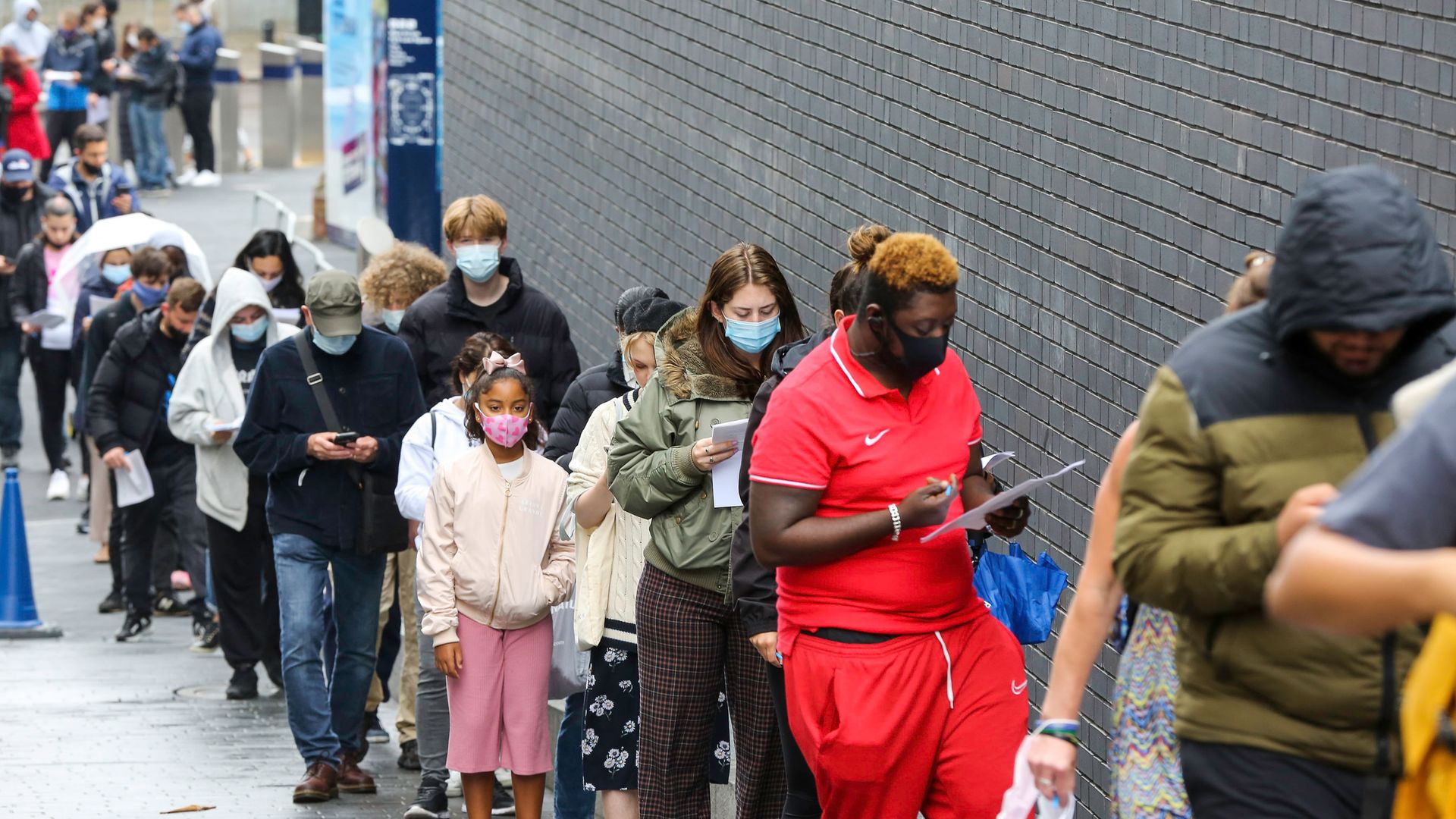
We cannot catch a break. Football didn’t, after all, come home – but the delta variant is very much paying us a visit.
Class after class of schoolchildren are getting sent home to isolate and ever-increasing numbers of us have had the dismaying ‘ping’ from the NHS app.
Coronavirus is, once again, on the rise: around 35,000 people a day are testing positive, numbers we haven’t seen since the end of the UK’s second wave in February. The UK is well on its way to a full-scale third wave.
There are reasons to hope this one might be different: two-thirds of adults are fully vaccinated and thousands more are jabbed each day. Better yet, the vaccine is largely effective against the delta variant.
But that doesn’t mean an unchecked third wave is without risks: younger unvaccinated adults might be extremely unlikely to die, but could still risk Long Covid, while if coronavirus spreads rapidly and unchecked, even the relatively small percentage of cases among vaccinated (or immunosuppressed) people could once again overwhelm the NHS.
Against that backdrop, the government’s decision to proceed with the July 19 “great reopening” looks either terrifying or just bizarre. How can we do a grand reopening if coronavirus is so prevalent? Unpicking the decision reveals some of the nightmarishly difficult decisions facing the people running countries in a time of Covid.
The government’s logic is this: it’s vaccinating as fast as it can, trying to get the economy back on its feet as fast as it can, and is determined to avoid another winter in lockdown or with thousands of deaths.
As vaccines progress, logic dictates that it must be accompanied by reopenings. But at what point? If it needs to wait for 90% or 95% of people to be fully vaccinated that could be months, especially as the unvaccinated become increasingly the younger adults with little to fear from the virus and little inclination to rush for jabs.
The government’s worry about waiting would be that its reopening – which, whenever it happens, will cause an increase in cases – could come in September or October, just as people would shift to indoor socialising and as the flu season gets under way.
The fear is that reopening later, even if it meant more adults were fully vaccinated, would be more damaging than reopening soon. So the government is hoping that reopening at the height of summer will mitigate its risk: schools will have broken up for six weeks, people will spend more time outside, and in theory hospitals will be quieter.
The hope is that the resulting third wave would be much milder than the first two, and also milder than it would be if left for the winter. It’s a huge gamble, but perhaps not as callous as it first appears – if it pays off, people will give the government a lot of credit.
The downside risks, though, are huge: the worst is that a coronavirus wave going through a partially vaccinated population is the peak mutation risk for a new, vaccine-resistant variant. If that happens and spreads internationally, it is essentially the nightmare scenario. There is also risk to the NHS: given its huge backlog, it is busier than it usually would be in summer.
Those who would condemn the government’s plan, though, have issues of their own to tackle. Foremost among these is that if the UK wishes to avoid a third wave altogether, it would not be enough simply to cancel the July 19 reopening – we would need to have stricter controls than we have now. The UK’s most recent R-number is around 1.4, meaning cases are already increasing at a significant rate, meaning even without the reopening this month, a third wave is coming.
We cannot stay in a cycle of lockdowns forever – at some point we have to rely on a mix of vaccine and natural immunity to return to some form of new normal. The government’s thinking is ‘if not now, when?’ At the moment most critics don’t seem to have a particularly strong answer to that question – but it’s one they need to find.
Many of us feel little reason to trust this government’s competence or intentions when it comes to Covid, and it is easy to feel like the summer reopening is just another stupid misstep after 18 months of little else.
Perhaps this will be judged as yet another stupid mistake – but it’s one that does, at least, show a lot of these decisions are difficult. It’s a shame ministers – and their critics – don’t do more to acknowledge the risks of both sides.
Warning: Illegal string offset 'link_id' in /mnt/storage/stage/www/wp-includes/bookmark.php on line 357
Notice: Trying to get property 'link_id' of non-object in /mnt/storage/stage/www/wp-includes/bookmark.php on line 37







